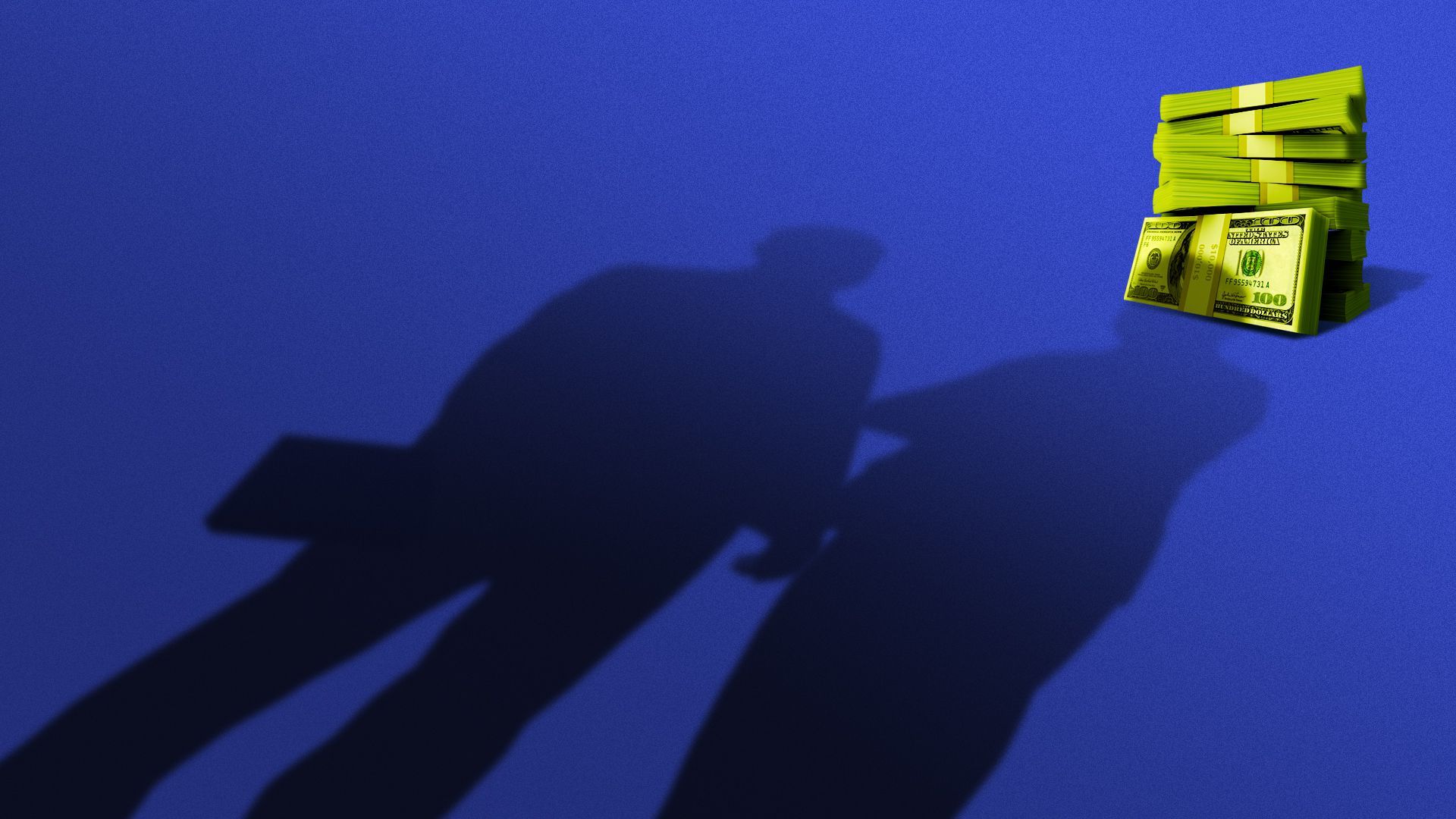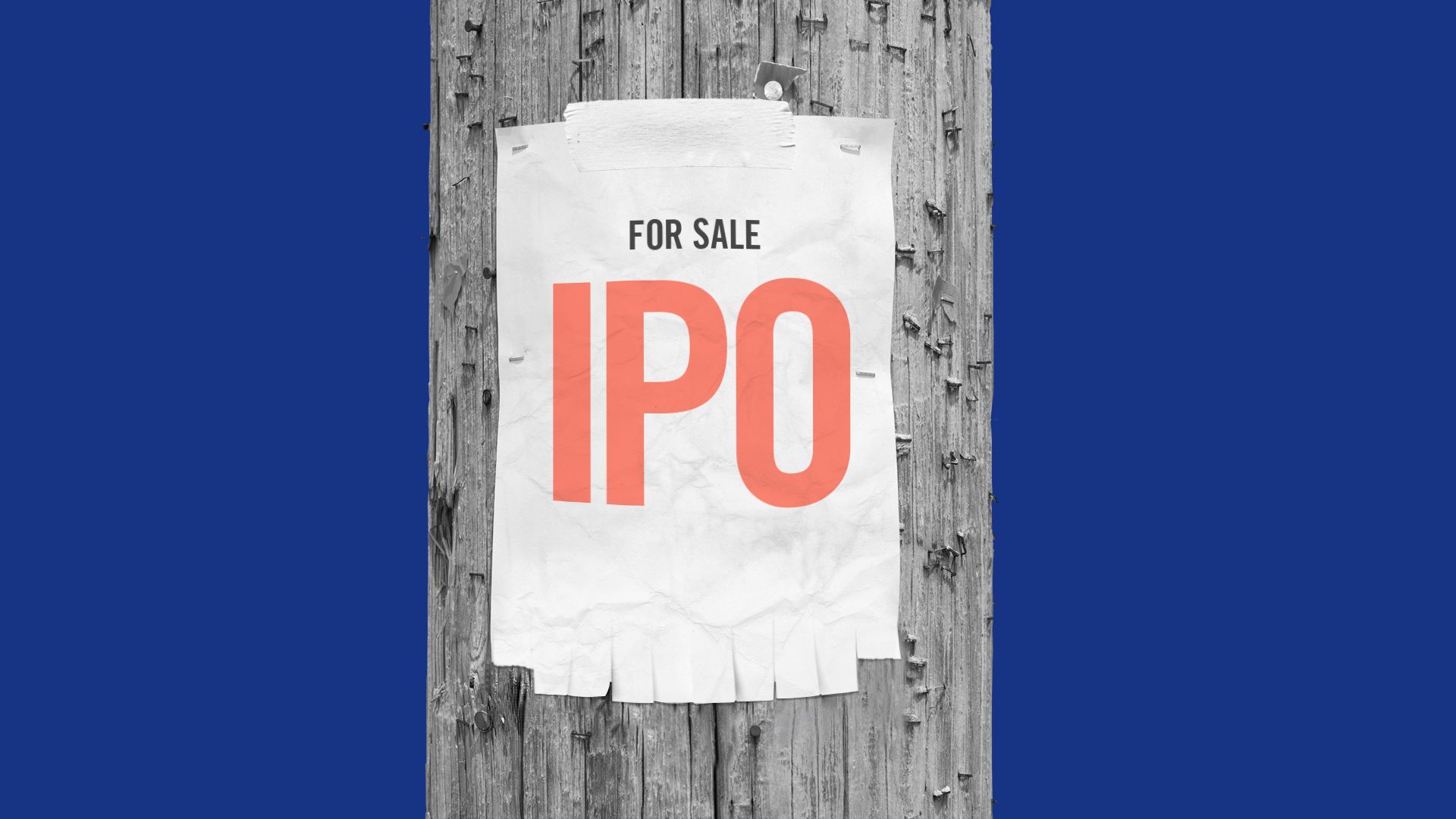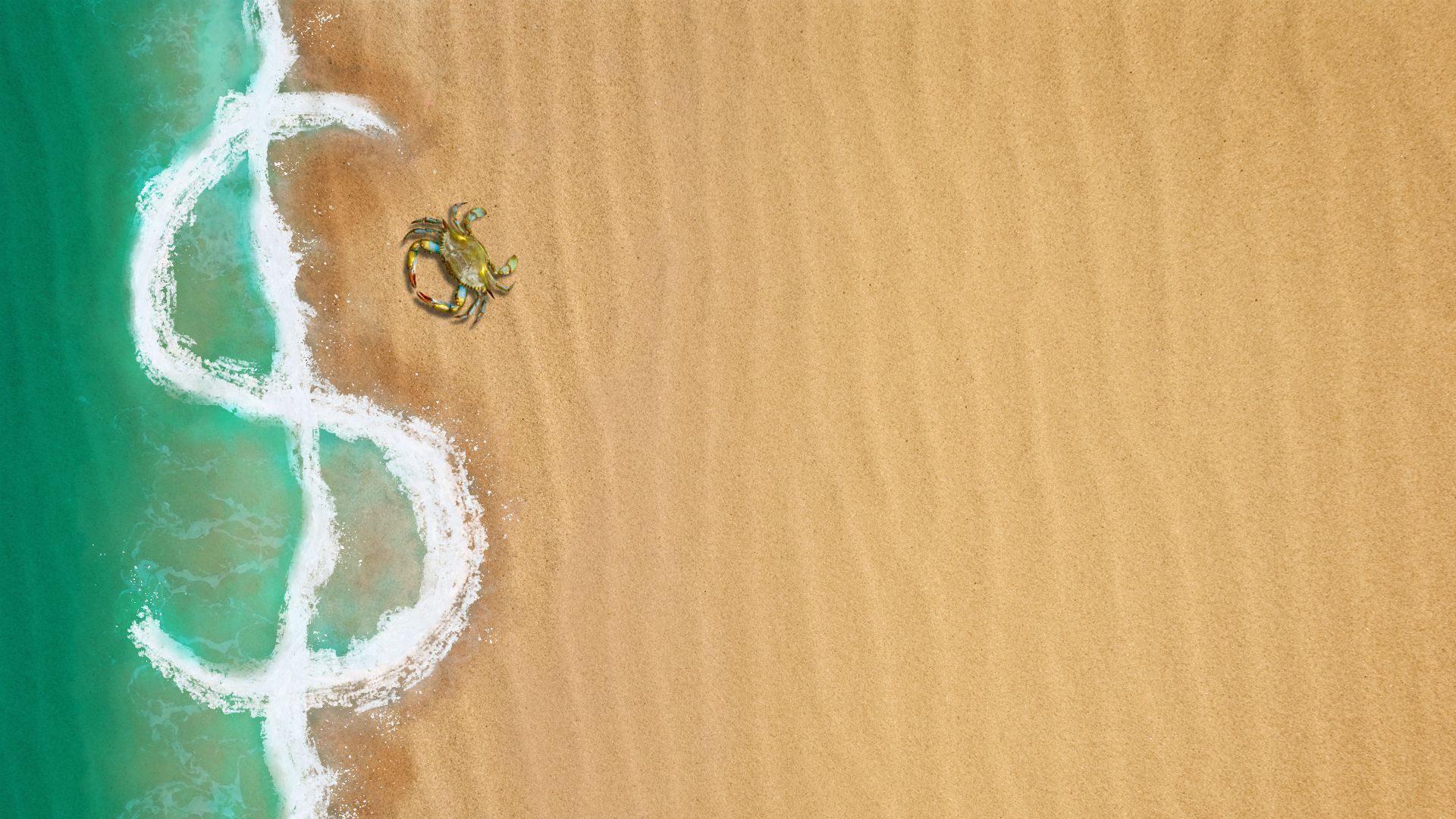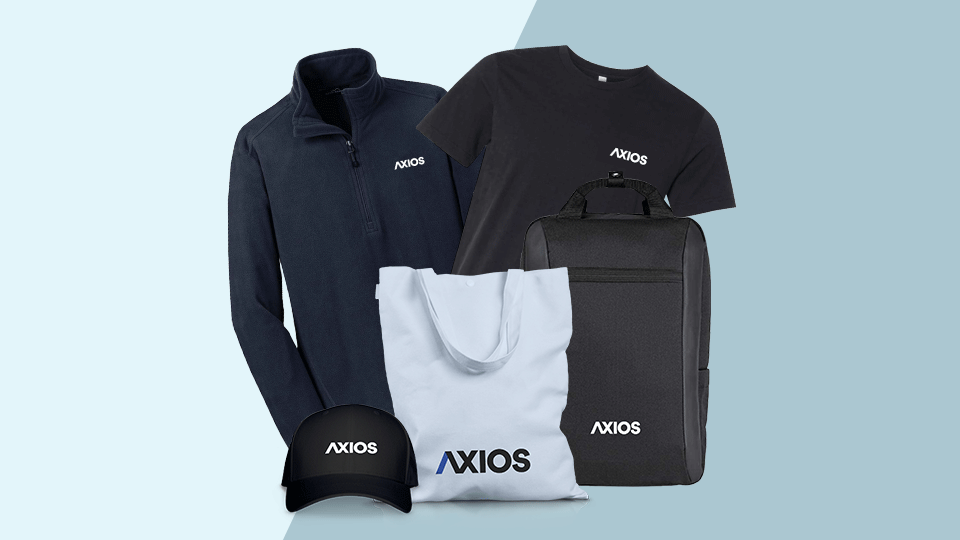| | | | | | | | | | | Axios Markets | | By Felix Salmon · Sep 24, 2022 | | Sometimes, the biggest new competitors in finance aren't VC-funded startups — they're massive public companies. This week, I look at how Apple and Goldman Sachs are faring in consumer finance. - Also in the 1,379 words, a 5-minute read: Where the IPO market is still open, Barbadian financial engineering, and an oversized Frank Lloyd Wright residence on sale for less than $1 million.
| | | | | | 1 big thing: When giants enter consumer finance |  | | | Illustration: Sarah Grillo/Axios | | | | Apple and Goldman Sachs have both made multi-billion-dollar bets on consumer finance — in one case, together. So far, the larger, less regulated tech company seems to be having more success than the systemically important bank. Why it matters: Apple Pay was launched in 2014; Marcus, the consumer-facing bank from Goldman Sachs, in 2016. The companies' joint credit card, the Apple Card, came in 2019. But only now are we beginning to get a feel for how the two companies' strategies are faring. The big picture: Apple and Goldman are established legacy businesses with balance sheets in the hundreds of billions of dollars, but they're also relative newcomers when it comes to consumer finance. Where it stands: Apple has quietly built a global juggernaut in Apple Pay, its contactless payments technology that has expanded from its early days on American Express, MasterCard and Visa to support 24 different payment networks around the world, including local debit and e-money networks. It's now in 65 countries and has signed up more than 10,000 banks. - Revenues are not disclosed, but the FT reported at launch that Apple had negotiated a take of 0.15% of every transaction.
- The European Commission has arrived at a "preliminary view" that Apple has abused its smartphone monopoly to restrict competition in mobile payments in order to maximize the market share of Apple Pay.
- Apple Pay is even taking off in the U.S., which has long been a laggard in contactless payments. A recent report estimated that it enables $200 billion of U.S. retail sales per year, with a 48% share of mobile wallet transactions — well ahead of the 17% share held by rival Google Pay.
Meanwhile: Goldman's consumer banking unit, Marcus — which specializes in online savings accounts — is likely to lose well over $1 billion this year. It's facing significant staff turnover, high rates of delinquent loans on its credit cards, and ongoing investigations from both the Consumer Financial Protection Bureau and the Federal Reserve. - That said, it also has more than $100 billion in deposits and more than $16 billion in outstanding loans, much of which is attributable to the Apple Card.
State of play: The companies' joint project, Apple Card, has worked out very well for Apple, which uses the credit card to help bring its expensive gadgets to as many Americans as possible. - The product lives up to Apple's standards of being well-designed, good-looking, and carrying very high customer satisfaction ratings.
- For Goldman, the card is a bit more of a mixed bag. In the continued absence of a Marcus checking account, the Apple Card is Goldman's highest-profile consumer offering — and it doesn't even carry the Marcus brand. (In the app, where it is most used, it carries no Goldman branding at all.)
- Apple's newest foray into the consumer-loan space, Apple Pay Later, involves lending directly from its own balance sheet rather than partnering with Goldman — solidifying the impression that Goldman needs Apple more than Apple needs Goldman.
Between the lines: Apple drives a hard bargain. - Beyond encouraging Goldman to offer the Apple Card to as many people as possible, it also pushed MasterCard to give the card World Elite status, which carries the highest swipe fees.
The bottom line: For all the billions that Goldman has poured into Marcus, it still doesn't look like a major competitive threat in consumer banking. - Apple, on the other hand, is slowly building finance deep into its iOS operating system. And that is some of the most valuable real estate in the world.
|     | | | | | | 2. Why big IPOs are still happening |  | | | Illustration: Eniola Odetunde/Axios | | | | Very few companies would voluntarily try to go public in the current stock market. Yet two multi-billion-dollar household names, both of them profitable, are planning blockbuster IPOs right now. Why it matters: The IPO market has flipped from favoring sellers to favoring buyers. In the case of Porsche and Instacart, that could be exactly what the companies' major shareholders are looking for. The big picture: Normally, companies going public try to raise as much money as possible at as high a valuation as possible. But that's not really what's going on in either of these cases. - Instacart is profitable, it has already raised money at a $39 billion valuation in 2021, and it has $1 billion of cash in the bank. It's likely to raise very little money in its IPO, and most of the shares for sale will be coming from employees.
- Porsche AG, the carmaker that's going public, is a subsidiary of Volkswagen, which in turn is controlled by Porsche SE, the investment vehicle of the Porsche-Piëch family. In this deal, the family is buying, rather than selling, a 25% voting stake in its eponymous marque, and is borrowing an eye-watering €7.9 billion to do so. They couldn't afford a much higher price.
Between the lines: Volkswagen shareholders will receive a special dividend of about $9 billion in 2023. While long-term investors like the Porsche family and Qatar's sovereign wealth fund are putting new money into the IPO, most rank-and-file shareholders will actually be taking money out. Instacart's ultimate owners — the investors in the VC funds who poured $2.7 billion into the company from 2012 onwards — will also like to see a clear public valuation for their stake. - Many of those investors — foundations, endowments, and the like — allocate a set percentage of their assets to venture capital. When their stock and bond portfolios fall, as they have done in recent months, VC can look overweight, making it harder for them to invest more in the asset class.
- If Instacart's public valuation is lower than its most recent private valuation, as seems likely, then that will reduce the value of the investors' stakes, possibly allowing them to allocate more money to their favored VC funds.
The bottom line: If an IPO price is low, then that just means there's more potential for stock price appreciation. That can be very attractive to long-term investors. |     | | | | | | 3. How Barbados took advantage of rising yields |  | | | Illustration: Sarah Grillo/Axios | | | | Another issuer taking advantage of the market downturn is the island nation of Barbados. Why it matters: As Barbados's debt price started to decline in the face of higher global interest rates, that gave the country the opportunity to buy it back at a discount, and to use the savings — some $50 million, over the next 15 years — to protect its precious oceans. How it works: Barbados issued $150 million of new debt at almost a risk-free rate, thanks to guarantees from the AAA-rated Inter-American Development Bank (IDB) and the AA-rated Nature Conservancy (TNC). It used the proceeds to buy back higher-yielding existing debt at 92 cents on the dollar, according to Slav Gatchev, the leader of TNC's sustainable debt team. - The new "blue bonds" are popular among impact investors, and have very close to preferred creditor status, since sovereign borrowers in the Americas never default to the IDB — "the de facto lender of last resort," as Gatchev puts it.
- If Barbados ever misses a payment, the IDB and TNC will pay the coupon instead — and immediately Barbados will owe them the money. Defaulting on this bond would effectively mean going into arrears to the IDB, and that is unlikely enough that TNC is happy to take the credit risk.
- The bond also includes a 2-year grace period on payments in the event of a hurricane or other natural disaster.
The bottom line: The world's oceans contribute an estimated $3 trillion to global GDP, according to the UN, and are particularly important to the nations collectively known as Small Island Developing States — or, alternatively, Large Ocean States. - This kind of financial engineering helps keep oceans healthy, not only in Barbados but also in Belize and the Seychelles.
|     | | | | | | A message from Axios | | Share Axios Markets and earn rewards | | |  | | | | Get free Axios merchandise when you refer your friends to Axios Markets. The more subscribers you refer, the bigger the rewards! Start sharing. | | | | | | 4. Building of the week: 1425 Valley View Drive, Racine |  | | | Photo: Chris Wohlgefahrt/Creative Juice Studios | | | | Frank Lloyd Wright designed his Usonian homes as middle-income housing, but 1425 Valley View Drive, near Lake Michigan between Chicago and Milwaukee, is a super-sized version. - It has 6 bedrooms, 8 bathrooms, and 5,000 square feet of interior space on a lot of 3.2 acres.
- Its great room is cantilevered above a ravine overlooking the Root River.
The original price, in 1954, was $165,000 — about $1.8 million in today's money. - The house just went up for sale for the first time since it was built, at the relatively bargain price of just $725,000. There's already a pending offer.
|     | | | | | | A message from Axios | | Share Axios Markets and earn rewards | | |  | | | | Get free Axios merchandise when you refer your friends to Axios Markets. The more subscribers you refer, the bigger the rewards! Start sharing. | | | | Thanks to Kate Marino for editing this week, and Elizabeth Black for copy-editing. |  | | Why stop here? Let's go Pro. | | | | | | Axios thanks our partners for supporting our newsletters. If you're interested in advertising, learn more here.
Sponsorship has no influence on editorial content. Axios, 3100 Clarendon Blvd, Arlington VA 22201 | | | You received this email because you signed up for newsletters from Axios.
Change your preferences or unsubscribe here. | | | Was this email forwarded to you?
Sign up now to get Axios in your inbox. | | | | Follow Axios on social media:    | | | | | |









No comments:
Post a Comment